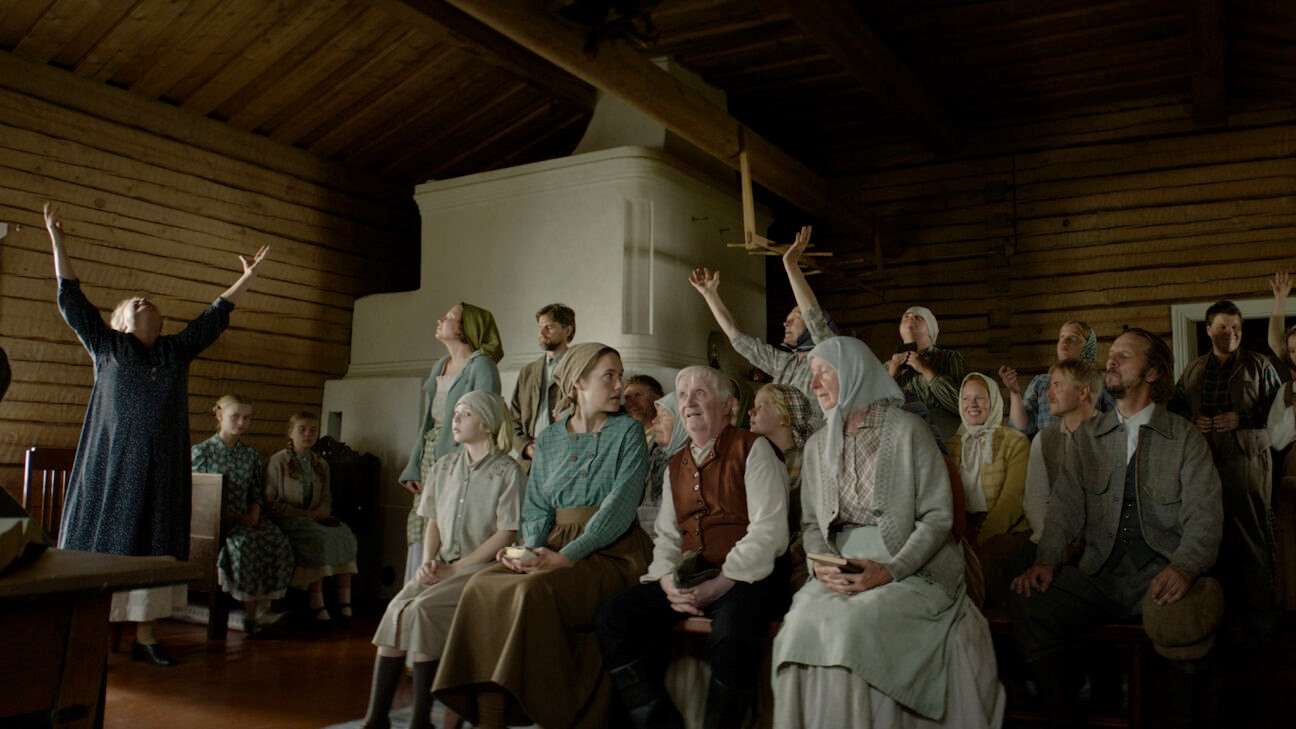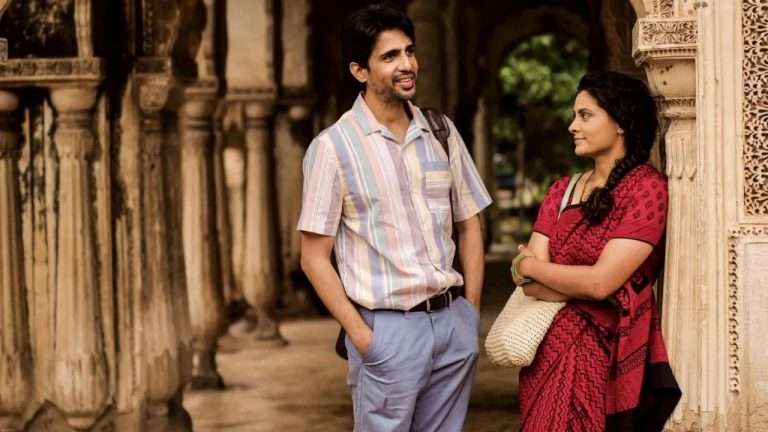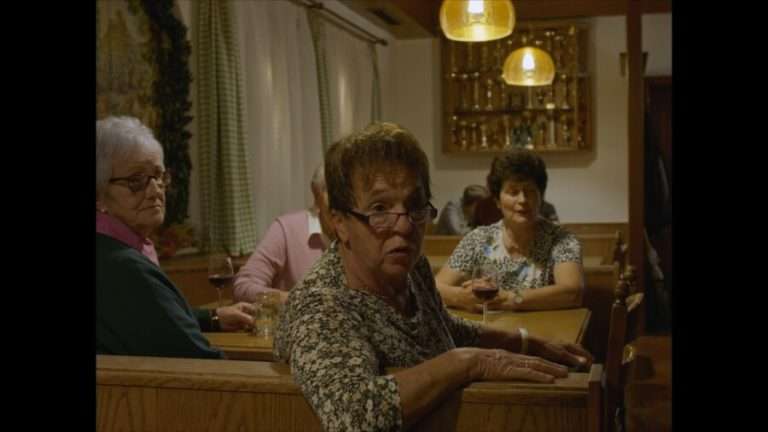Of what use is devotion when it swerves from the healing to the corrosive? Jon Blåhed’s unflinching film Raptures (Valitut, 2025) swoops on the excesses of belief, surveying the fallout of its most blinded avatar. It becomes a solipsistic affair, shutting out reason and dancing to the beat of its own deluded, twisted logic.
Set in the 1930s and drawing from real events, the film draws us to the vicelike grip the ‘Korpela movement’ had on northern Sweden. The religious sect is successful in exerting its presence and influence, despite resistance and threats from the Church. After the proponent of the sect leaves the village, Teodor (Jakob Öhrman, a fine-tuned portrait of inscrutable moral complexity) takes charge as the religious authority.
Teodor doesn’t strike as an individual who’s aware he’s doing harm. He is so sunk in his private, alternative faith he sanctifies all his base desires as endowed by the light of the sect itself. He assumes the all-granting power of the savior himself. Rakel, his wife (Jessica Grabowsky) also the local schoolteacher is the film’s quiet, unwavering moral center. From quite early point of the events, she starts to have doubts. They persist, nagging her to grapple deeper with what she is told to submit to and accept unprotestingly. Shouldn’t they continue to work? How can Elsa just drop out of school? She’s confused and lost but demurs from outright rebellion.
Grabowsky’s face registers a depth of repressed inner tumult. Rakel’s doubts about Teodor multiply, intensifying as he hurtles towards irredeemable deeds. His arrogance about being the one who truly understands divine instruction holds no capacity for self-reflection. These plunges into skewed devotion wield a cult-like pull, sucking an entire community into inevitable loss. Misdirection seeps deep, inexorably. Once the seed is planted, the sect’s tenets echo out. He exhorts about an ark that is coming soon to lift the villagers and deliver them to their promised land. He plays with collective hopes.

She wants to question her husband but has to first combat patriarchal conditioning. How can he be wrong? She struggles to lash out against Teodor, loudly voicing her growing hesitance in his certitude. Instead, her doubts turn inward. Is she really certain about her skepticism? She seeks clarity and moral direction from the Lord himself, requesting to be sent reassurances that they are indeed on the right path as Teodor is proclaiming.
Teodor drifts further and further from orthodox Christianity. It starts with the promise of the ark that will rescue them before judgment day arrives. Gradually this creed shifts into ennobling moral transgressions. Lust becomes cast in stone as man’s urges that must not be shied from. If and whenever desire sparks, it has to be satiated, disregarding any social propriety. Of course, none of the women get this thrust. It’s a prerogative solely for Teodor.
There are some blind spots in “Raptures,” though. Certain chasms within the village, dividing the cult’s followers and those outside it, come off as lightly etched to the point of being vague. The film fixates too heavily on the central couple alone, eliding palpable transformations in those around them. This gets especially tough to ignore when another wife and mother in the village, Lisa (Alma Poysti), who has a mostly hovering role, is critically linked to the ultimate collapse of the sect. Other peripheral relationships aren’t developed beyond just being a sorry prey to Teodor’s whims. Hence the trajectory of the faith’s growing, damaging influence is held back from registering in detail or nuance. There’s a scale in the film but the specificity required to fully realize it is amiss.
Neither does “Raptures” dig into the self-absorption of Teodor. It doesn’t take much to gauge being the cult leader thrusts him with a newfound sense of identity and purpose. But he is just posited as an unknowable figure whose beliefs only get firmer even as he’s dragged into the mud. He is purposefully kept in the dark, his motivations, and driving force foggy and elusive. You wish for a sprinkling of characterization that offers a few glimpses into his vacillating insecurities in his faith. These concerns flatten an otherwise confident, meticulously textured period drama.






![Fury [1936] Review – The Thundering American Debut of the Great German Film-Maker](https://79468c92.delivery.rocketcdn.me/wp-content/uploads/2021/06/Fury-1936-768x612.jpg)
![The 400 Blows [1959]: An unsentimental film about Adolescence](https://79468c92.delivery.rocketcdn.me/wp-content/uploads/2015/12/vlcsnap-2015-12-01-22h42m06s658.png1.jpg)